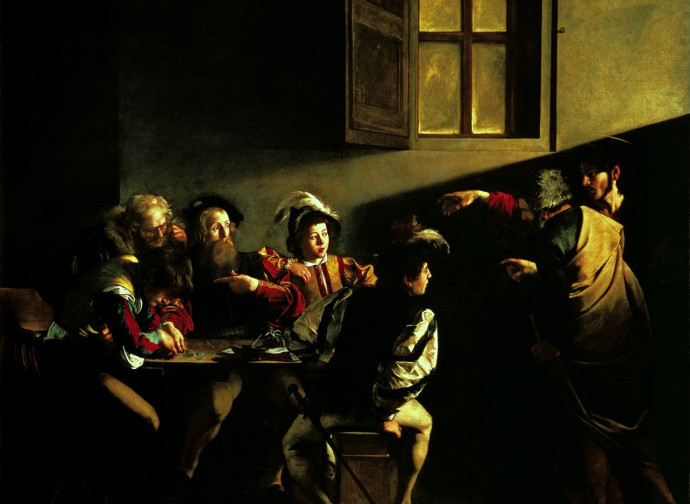Saint Matthew
First publican, then apostle and evangelist, and finally saint. Matthew, whom Luke and Mark also call Levi, describes the radical turning point in his life in this way: “And as Jesus passed forth from thence, He saw a man named Matthew, sitting in the customhouse. And He said unto him, ‘Follow Me.’ And he rose and followed Him” (Mt 9:9).

First publican, then apostle and evangelist, and finally saint. Matthew, whom Luke and Mark also call Levi, describes the radical turning point in his life in this way: “And as Jesus passed forth from thence, He saw a man named Matthew, sitting in the customhouse. And He said unto him, ‘Follow Me.’ And he rose and followed Him” (Mt 9:9). As Benedict XVI commented, “In this ‘he rose’, it is legitimate to read detachment from a sinful situation and at the same time, a conscious attachment to a new, upright life in communion with Jesus”, in the light of the Lord's exhortation not to accumulate treasures on earth but in Heaven.
The publicans collaborated with the Roman occupiers to collect taxes and sometimes practised usury, which is why they were considered public sinners. Significantly, in enumerating the Twelve, the evangelist calls himself “Matthew the Publican”. According to St Jerome, he does so “to show readers that no one should despair of salvation if he converts to a better life”.
The first Gospel, written around 40-50, is addressed above all to the Jews, as the ancient Fathers already noted. In this light one can read the choice to begin with a genealogy of Jesus that goes back to Abraham and the frequent quotations from the Old Testament to show that Christ is the Messiah prophesied in the Scriptures. Although only a Greek edition already known in the first century has reached us, we know that Matthew originally wrote in Aramaic, as reported among others by Eusebius of Caesarea in his Church History: “Matthew, who at first had preached among the Jews, when he decided to go to other peoples, wrote in his mother tongue the Gospel which he had announced; so he tried to replace with the writing, among those from whom he was separated, what they lost with his departure”.
Patron of: bankers, accountants, customs officers, financiers, bookkeepers
Learn more:
Catechesis of Benedict XVI (General Audience of 30 August 2006)
